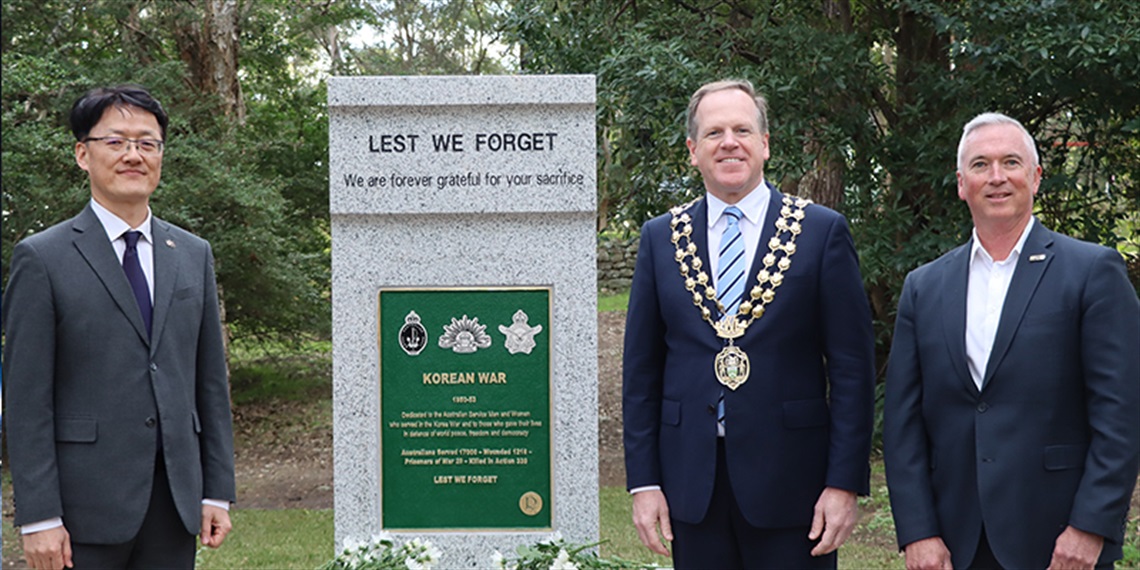
The City of Ryde unveiled a new Korean War Memorial during the annual flag-raising ceremony on Sunday 27 July 2025 commemorating the armistice of the war.
The ceremony, held at Memorial Park, Meadowbank, was attended by Korean Consul-General Yong Jun Choi and Kihwan Kim, Chief of the Korea Local & State Government Office, GAROK Oceania at the Korean Consulate General.
Korea's Gapyeong County kindly donated a wonderful memorial stone recognising the 17,000 Australian servicemen who took part in the Korean War, which was fought between June 25, 1950, and July 27, 1953. That number included close to 100 Ryde-born servicemen.
Unfortunately, a delegation from Gapyeong County had to cancel its planned attendance due to a terrible flood disaster which caused death, destruction and displacement in Korea in the days leading up to the ceremony.
City of Ryde Mayor Trenton Brown expressed his deepest sympathies on behalf of the community to those impacted by the tragedy, which was worse felt in Gapyeong County.
"Gapyeong County made the difficult and completely understandable decision to withdraw and concentrate on the unfolding disaster at home," he said. "I will be writing to the Gapyeong County delegation as well as sending a video message extending our best wishes and an invitation to visit the City of Ryde at a suitable time in the future."
The memorial stone is a particularly meaningful commemoration of those Australian soldiers who took part in the famous Battle of Kapyong, situated within Gapyeong County. This is widely regarded as one of the greatest displays of bravery by our troops in any armed conflict.
The battle was fought in the Kapyong Valley over three days in April 1951 between the United Nations Command forces - mostly Australian and Canadian soldiers - and the Chinese Communist People's Volunteer Army during the Chinese Spring Offensive of the Korean War.
Although heavily outnumbered by as many as five to one, the Australians and Canadians managed to repel wave after wave of fierce attacks in defending their strategically vital positions. The Australian army suffered heavy losses during the battle - with 32 dead and 59 wounded - but their efforts eventually forced the enemy to withdraw, closing the door to their advance towards Seoul.
For their part in the battle, the Australians were awarded the high distinction of a Presidential Citation by US President Harry Truman.
Mayor Brown said the Korean War was often referred to as 'the forgotten war', wedged as it was between World War II and the Vietnam War.
"But, like all wars, this so-called 'forgotten' one took an awful toll on human life," he said. "An estimated three million people were killed, with a higher proportion of civilian casualties than the conflicts on either side of it. More than 1,200 Australians were injured and 340 were killed.
"For the loved ones and descendants of all the brave Australian and Korean soldiers and civilians who fought or lost their lives in this terrible war, the memories will remain forever.
"Lest we forget."






